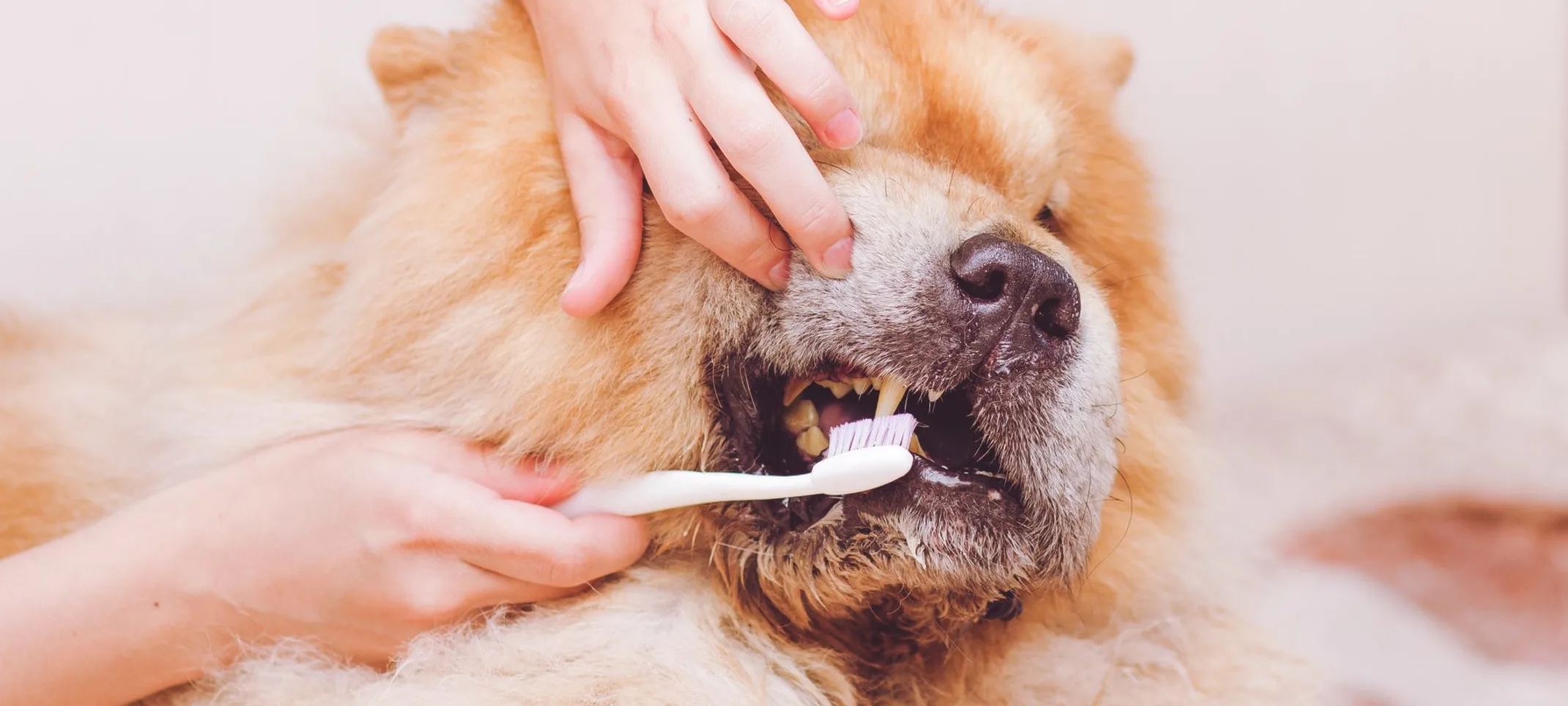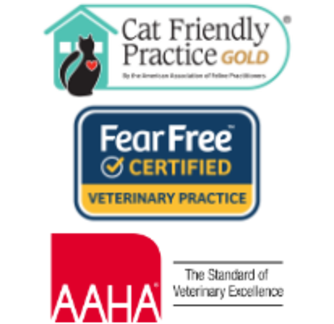Animal Hospital of Waynesville
Dental Care
Stinky dog and cat breath not only smells bad but it may also indicate serious problems in your pet’s mouth.

80% of dogs and 70% of cats show some signs of oral disease by the age of three. Periodontal disease is the most common problem and is the destruction of important structures that hold the teeth in place. We want to keep your pet’s teeth healthy. Oral health has a direct link to the health of the rest of your pet. It is essential to their quality of life.
During every exam with our veterinarians, your pet receives a complete oral exam. If too much tartar or excessive calculus is found during your exam, a dental cleaning will be recommended. Regular professional cleaning is important to maintaining your pet’s teeth. We use modern and safe ultrasonic cleaning techniques to clean each tooth thoroughly – above and below the gum line. Most of us have cared for our teeth daily all of our lives. In comparison to human dentistry, veterinary dentistry is much more labor intensive. Routine anesthesia is necessary to provide the needed care including a thorough exam, dental x-rays, detailed cleaning and polishing of all tooth surfaces. Because we feel that dental health is vitally important to your pet, we have invested in state-of-the-art dental equipment and high quality digital dental radiography to provide your pet with the best and allow our veterinarians to quickly and accurately diagnose problems in your pet.
Advanced dental care is available including digital dental radiography, dental extractions and oral surgery, and the use of advanced dental products such as consil (product used to fill pockets where we have extracted teeth to help bone growth) and doxirobe gel (antibiotic treatment). A complete booklet of your pet’s dental procedure and pictures of their teeth before and after the cleaning, including the dental x-rays, are sent home with you. Also, one of our registered technicians or trained veterinary assistants will do a dental recheck 2 weeks after the dental procedure at no additional cost.
Unhealthy Teeth: Taking A Bite Out of Our Healthy Pets
Unhealthy teeth not only lead to bad breath but can lead to a list of issues for our four-legged family members.
When a tooth becomes diseased it can cause inflammation and infection to develop. The problem is that the starting stages occur under the gum-line and can be missed by the naked-eye. It isn’t until there is bone loss, loss of tooth, bleeding from the gums and possible abscess, that the issue is caught.
A diseased tooth is very painful. Just imagine having a toothache that caused so much pain and discomfort that you couldn’t even eat…and you have no way of letting anyone know just how much it truly hurts. Not being able to eat normally can result in malnutrition and weight loss.
Pets with dental disease can show behavioral changes. They can become grumpy, withdrawn, lethargic, depressed, and sometimes they can even become snippy when petted around the head. These changes are a way that our pets communicate to us that something is wrong.
A big issue that can be secondary to dental disease and is hardly ever thought of is the negative impact it can have on an owner to bond with their pet. We have all experienced “doggie/kitty” breath and know how bad it can be at times. Of course our first reaction is to place the pet further away from us or at least until we can no longer smell the breath. Bad breath can result in less time spent with the pet, the pet being removed from sleeping with owners, pet not being allowed up on the couch or on a person’s lap, the pet being “put-up” while company is over, less petting, and if the pet becomes snippy due to pain then a mistrust can form. All of these can lead to a weakened bond with the family.
There can be changes to major organs within the body secondary to dental disease. These changes are the results of bacteria from the mouth entering the bloodstream. Once inside the bloodstream the bacteria flows throughout the entire body and can sometimes cause irreversible microscopic changes to organs. The three major organs that can be affected are the heart, liver, and kidneys.
Heart – Bacteria flowing through the heart can cause a thickening to the heart muscle. This thickening can cause the heart to work harder than normal resulting in valves becoming weaker. Weakened heart valves cause the blood to not flow normally throughout the heart resulting in turbulent flow and murmurs.
Liver – The liver acts as a huge filter for the body. It filters all the blood within the body and removes the harmful agents. Bacteria from the mouth can result in liver infections and liver inflammation.
Kidneys – Much like the liver, the kidneys filter out harmful agents from the bloodstream. Removing extra agents, such as bacteria from the mouth, resulting in the kidneys having to work harder than normal.
Having the immune system work harder to fight the possible infections from the extra bacteria results in an increase in stress hormones being released. This increase in stress hormones causes extra stress on the entire body and can weaken the immune system allowing pets to be more susceptible to infections.
Bad breath is just the tip of the dental iceberg when it comes to dental disease. Being proactive with having routine oral examinations will help catching signs early. Remember healthy teeth are important in keeping your pet healthy.

